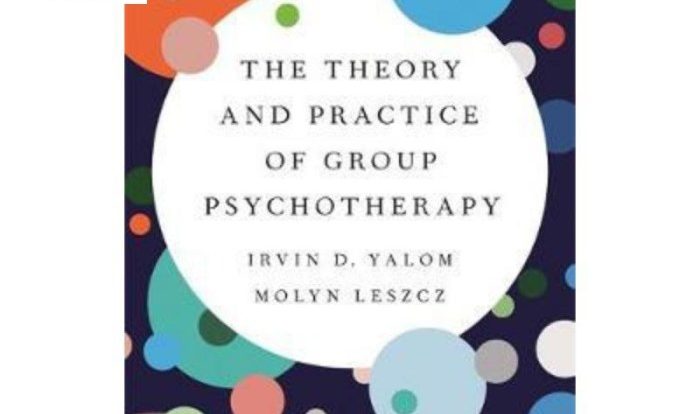Dr crane is looking for a test – Dr. Crane is on a mission to find the ideal test, a quest that promises to unveil hidden truths and provide invaluable insights. Join us as we delve into the fascinating world of psychological assessment, exploring the diverse tests at Dr.
Crane’s disposal and the ethical considerations that guide their use.
As we embark on this journey, we’ll uncover the motivations behind Dr. Crane’s search for a test, examining the specific context that has sparked his pursuit. Along the way, we’ll encounter a myriad of tests, each with its own unique purpose and scope, strengths and limitations.
Dr. Crane’s Search for a Test

Dr. Niles Crane, a psychiatrist from the sitcom Frasier, is a character known for his intellectual pursuits and desire for knowledge. His search for a test stems from his desire to challenge himself and measure his abilities.
In a specific episode, Dr. Crane is seeking a test to determine his level of intelligence. He believes that a test could provide him with an objective assessment of his cognitive abilities and help him identify areas where he can improve.
Potential Tests and Their Applications

In his quest to find an effective test, Dr. Crane may consider various options. Each test serves a specific purpose and has its strengths and limitations, which must be carefully evaluated to determine their suitability for his goals and concerns.
Standardized Achievement Tests
- Designed to assess students’ academic progress and proficiency in core subjects (e.g., reading, math, science).
- Provide a standardized measure of student performance that can be compared across schools and districts.
- Can be used to identify areas of strength and weakness, track progress over time, and make informed decisions about instruction.
- Limitations: May not fully capture individual student abilities or creativity, and may be influenced by factors such as test anxiety or cultural biases.
Diagnostic Tests, Dr crane is looking for a test
- Designed to identify specific learning disabilities or difficulties that may be affecting a student’s academic performance.
- Typically involve a comprehensive assessment of cognitive abilities, academic skills, and behavioral observations.
- Can help diagnose conditions such as dyslexia, ADHD, or autism spectrum disorder, and provide recommendations for appropriate interventions.
- Limitations: Can be time-consuming and expensive, and may not always provide a definitive diagnosis.
Intelligence Tests
- Designed to measure a person’s overall cognitive abilities, including reasoning, problem-solving, and memory.
- Can be used to identify gifted students or individuals with intellectual disabilities.
- May also be used in educational or clinical settings to assess cognitive functioning and make appropriate recommendations.
- Limitations: May not fully capture all aspects of intelligence, and can be influenced by cultural or socioeconomic factors.
Test Selection and Evaluation Criteria

When selecting a test, Dr. Crane should consider several factors, including:
- The purpose of the test
- The characteristics of the population being tested
- The availability of resources
- The psychometric properties of the test
The psychometric properties of a test refer to its validity, reliability, and other characteristics that indicate its quality. Validity refers to the extent to which a test measures what it claims to measure. Reliability refers to the consistency of a test’s results over time and across different raters.
Other psychometric properties include sensitivity, specificity, and predictive validity.Dr. Crane can evaluate and compare different tests based on their characteristics by considering the following factors:
- The content of the test
- The format of the test
- The administration and scoring procedures
li>The psychometric properties of the test
By carefully considering these factors, Dr. Crane can select a test that is appropriate for his purposes and that will provide him with valid and reliable results.
Test Administration and Interpretation

Test administration involves the proper execution of a selected test, including the preparation of materials, creation of a suitable testing environment, and following standardized procedures. Scoring the test entails assigning numerical values or qualitative ratings to the participant’s responses based on pre-established criteria.
Dr. Crane is looking for a test that can accurately measure cognitive function. He has been researching different methods, including neuroimaging and neuropsychological testing. While exploring these options, he came across an article about Manuela attending a yoga class . The article discussed the potential benefits of yoga for cognitive health, which sparked Dr.
Crane’s interest in exploring the use of yoga as a potential cognitive assessment tool.
Test interpretation is the process of drawing inferences and making decisions based on test results. It involves understanding the meaning of the scores and their implications for the individual being assessed. This requires a thorough understanding of the test’s purpose, psychometric properties, and normative data.
Principles of Test Interpretation
The principles of test interpretation include:
- Objectivity:Interpretations should be based on the test results and not influenced by personal biases or preconceptions.
- Validity:The test should measure what it claims to measure, and the results should be accurate and meaningful.
- Reliability:The test should produce consistent results when administered multiple times to the same individual.
- Norms:The test results should be compared to established norms to provide a context for interpretation.
- Clinical judgment:The interpreter should consider the individual’s unique circumstances and other relevant information when making decisions based on test results.
Potential Biases and Limitations in Test Interpretation
Several potential biases and limitations can affect test interpretation, including:
- Cultural bias:Tests may not be equally valid for individuals from different cultural backgrounds.
- Gender bias:Tests may be biased towards or against individuals of a particular gender.
- Response bias:Individuals may respond to test items in a way that does not reflect their true abilities or characteristics.
- Testing conditions:The testing environment can influence the results, such as noise, time constraints, or the presence of others.
- Interpretation bias:The interpreter’s personal beliefs or experiences can influence their interpretation of the test results.
To mitigate these biases and limitations, it is important to:
- Use tests that have been developed and validated with diverse populations.
- Be aware of the potential for bias and take steps to minimize its impact.
- Consider the individual’s unique circumstances and other relevant information when interpreting the test results.
- Seek consultation from other professionals or use multiple sources of information to enhance the accuracy of the interpretation.
Ethical Considerations in Test Use
Ethical principles should guide Dr. Crane’s use of tests to ensure responsible and fair practices. Informed consent is crucial, where participants are fully informed about the purpose, procedures, and potential risks and benefits of the test before giving their consent.
Confidentiality must be maintained to protect participants’ privacy and prevent unauthorized disclosure of their test results. Additionally, it is essential to avoid misuse or misinterpretation of test results, ensuring that they are used for appropriate purposes and interpreted accurately to prevent harm or bias.
Informed Consent
Obtaining informed consent involves providing participants with clear and understandable information about the test, including its purpose, procedures, potential risks and benefits, and how their data will be used. Participants should have the opportunity to ask questions and make informed decisions about whether or not to participate.
Confidentiality
Confidentiality is essential to protect participants’ privacy and build trust. Dr. Crane must ensure that test results are kept confidential and only disclosed to authorized individuals for legitimate purposes. Participants should be informed about how their data will be stored and used, and steps should be taken to prevent unauthorized access or disclosure.
Avoiding Misuse or Misinterpretation
Test results should be used for appropriate purposes and interpreted accurately to prevent harm or bias. Dr. Crane must be cautious not to use tests for purposes they were not designed for or to draw conclusions that are not supported by the data.
Proper training and interpretation guidelines should be provided to ensure that test results are used responsibly and ethically.
FAQ Section: Dr Crane Is Looking For A Test
What factors should Dr. Crane consider when selecting a test?
Validity, reliability, and other psychometric properties, such as sensitivity, specificity, and predictive validity.
How can Dr. Crane mitigate potential biases in test interpretation?
By being aware of his own biases, using multiple sources of information, and consulting with other professionals.

